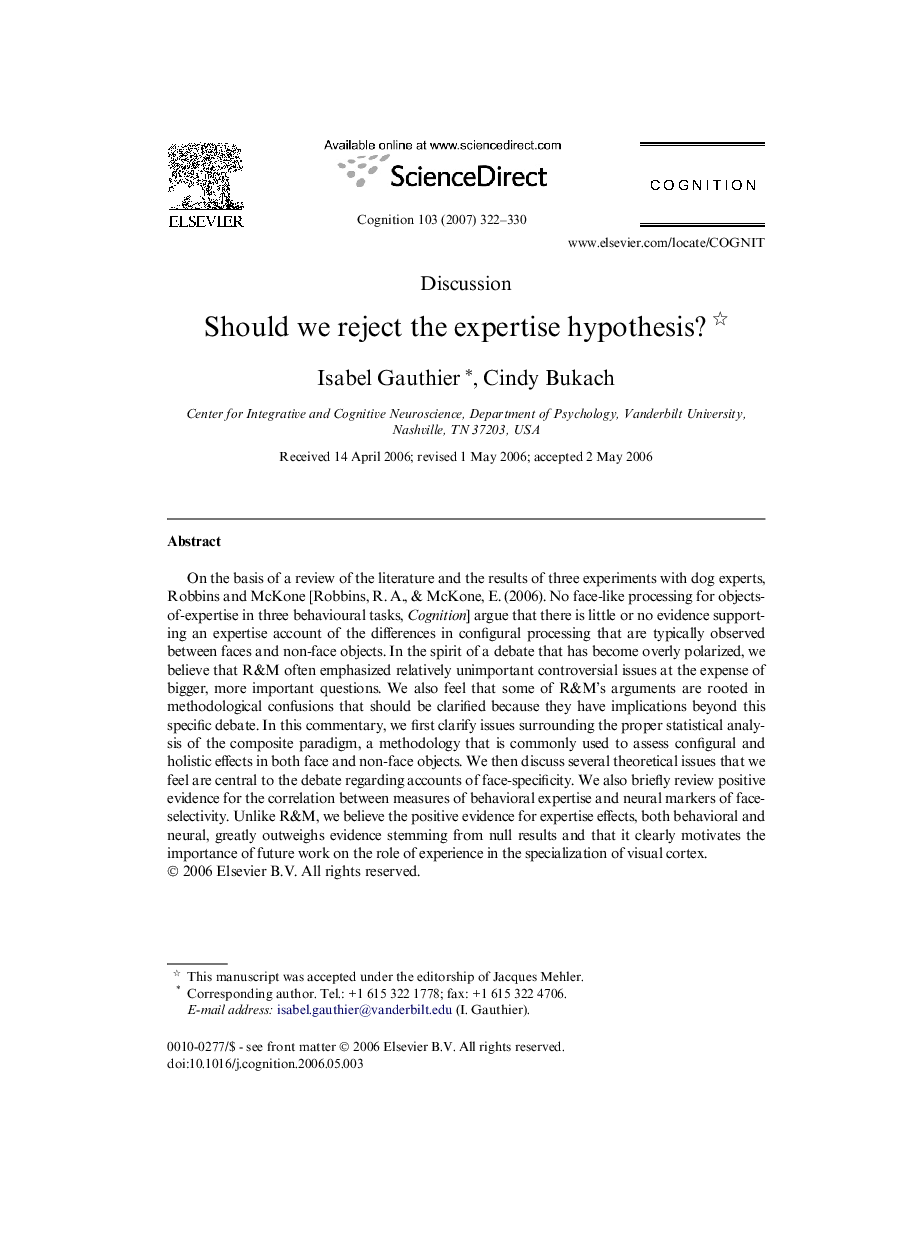| کد مقاله | کد نشریه | سال انتشار | مقاله انگلیسی | نسخه تمام متن |
|---|---|---|---|---|
| 927485 | 921989 | 2007 | 9 صفحه PDF | دانلود رایگان |

On the basis of a review of the literature and the results of three experiments with dog experts, Robbins and McKone [Robbins, R. A., & McKone, E. (2006). No face-like processing for objects-of-expertise in three behavioural tasks, Cognition] argue that there is little or no evidence supporting an expertise account of the differences in configural processing that are typically observed between faces and non-face objects. In the spirit of a debate that has become overly polarized, we believe that R&M often emphasized relatively unimportant controversial issues at the expense of bigger, more important questions. We also feel that some of R&M’s arguments are rooted in methodological confusions that should be clarified because they have implications beyond this specific debate. In this commentary, we first clarify issues surrounding the proper statistical analysis of the composite paradigm, a methodology that is commonly used to assess configural and holistic effects in both face and non-face objects. We then discuss several theoretical issues that we feel are central to the debate regarding accounts of face-specificity. We also briefly review positive evidence for the correlation between measures of behavioral expertise and neural markers of face-selectivity. Unlike R&M, we believe the positive evidence for expertise effects, both behavioral and neural, greatly outweighs evidence stemming from null results and that it clearly motivates the importance of future work on the role of experience in the specialization of visual cortex.
Journal: Cognition - Volume 103, Issue 2, May 2007, Pages 322–330